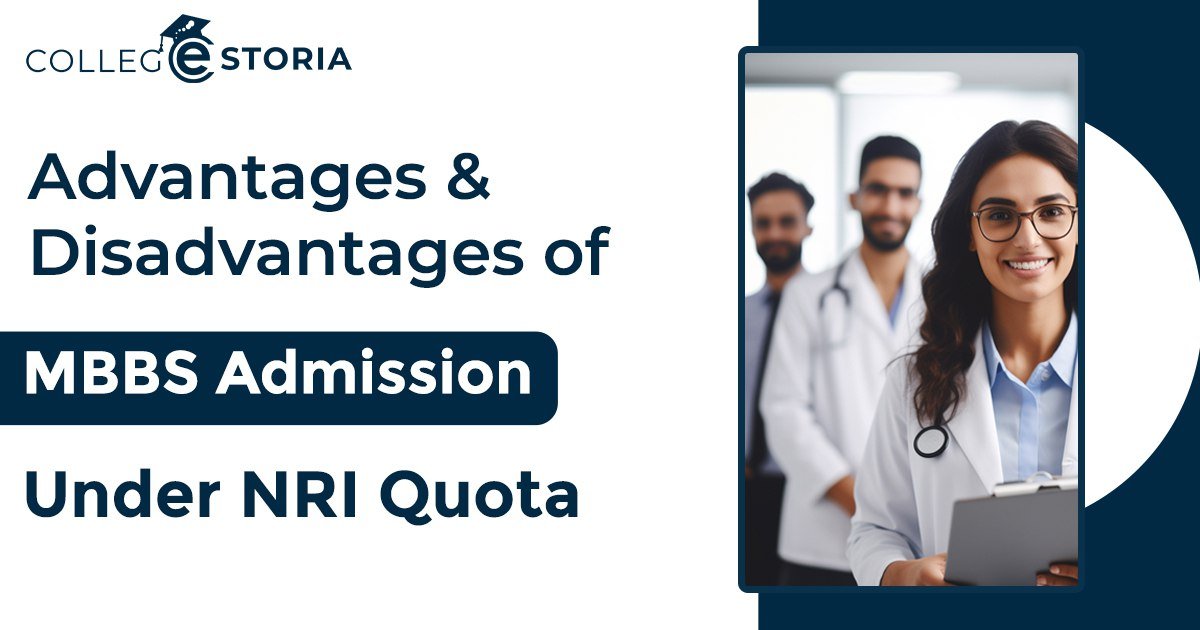Pursuing medicine is a dream for many students, but securing a seat in India’s top medical colleges is highly competitive. For Non-Resident Indians (NRIs) and their dependents, the NRI Quota Admission in MBBS serves as an alternative pathway. While this route provides great opportunities, it also comes with certain challenges. Let’s explore the advantages and disadvantages of securing admission under this quota, so aspirants and parents can make informed decisions.
Advantages of MBBS Admission Under NRI Quota
1. Easier Access to Seats
One of the biggest benefits of the NRI quota is the availability of reserved seats. With limited seats in the general category and extremely high cutoffs, the NRI quota provides a relatively smoother entry into reputed medical colleges in India.
2. Opportunity to Study in India
Many NRIs prefer that their children pursue medical education in India due to the strong curriculum, clinical exposure, and affordability compared to Western countries. NRI quota ensures that Indian-origin students living abroad get this opportunity without competing entirely in the general pool.
3. Wide Range of Colleges
Most private and deemed universities offer NRI Quota Admission in MBBS, opening doors to numerous reputed institutions across states. This gives candidates flexibility in choosing colleges based on preference, location, and budget.
4. Global Career Advantage
Studying MBBS in India under the NRI quota gives students exposure to diverse clinical cases and strong academic training. Many graduates successfully clear licensing exams abroad (like USMLE, PLAB, or AMC) and build international medical careers.
Disadvantages of MBBS Admission Under NRI Quota
1. Higher Fee Structure
The biggest drawback is the cost. Colleges under the NRI quota charge significantly higher tuition fees, often in US dollars. While general category students may pay ₹10–15 lakhs annually, NRI candidates might have to pay ₹25–40 lakhs per year, depending on the institution.
2. Strict Documentation Requirements
To be eligible, candidates must provide authentic proof of NRI status, such as a passport, visa, relationship certificate, and sometimes sponsorship affidavits. Any missing or incorrect documents can lead to rejection during counselling.
3. Limited Scholarships or Concessions
Unlike the general category, where merit-based scholarships or government subsidies are sometimes available, NRI quota students rarely get financial relief. The financial burden falls entirely on families.
4. Seat Allotment Priority
Recent MCC guidelines divide NRI applicants into Priority 1 (genuine NRIs/OCI/children of NRIs) and Priority 2 (sponsored candidates). Priority 1 students are given preference, which may reduce opportunities for sponsored candidates.
How Collegestoria Helps Aspirants
Navigating NRI Quota Admission in MBBS can be complex due to evolving norms, high fees, and documentation. Collegestoria provides expert counselling, from eligibility checks and documentation assistance to seat selection and counselling guidance. Their support ensures that families make the right choices without costly mistakes.
Final Thoughts
The NRI quota in MBBS is a boon for students of Indian origin abroad, but it comes at a higher financial cost and requires meticulous planning. By weighing the advantages and disadvantages carefully and seeking expert guidance from platforms like Collegestoria, aspirants can make well-informed decisions and successfully embark on their medical journey in India.
